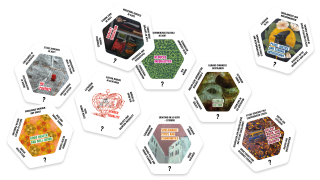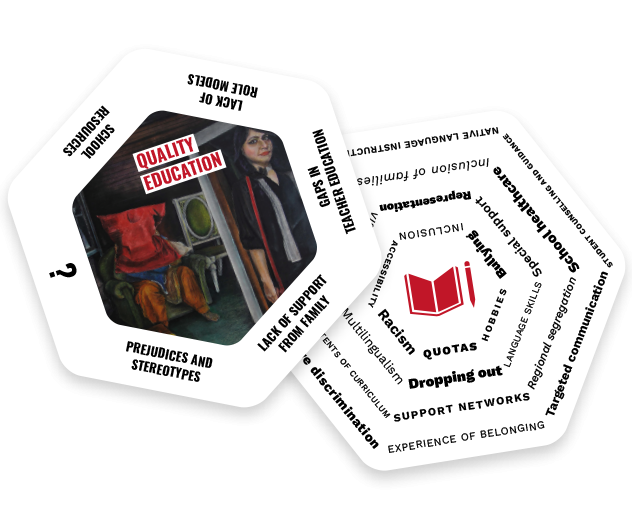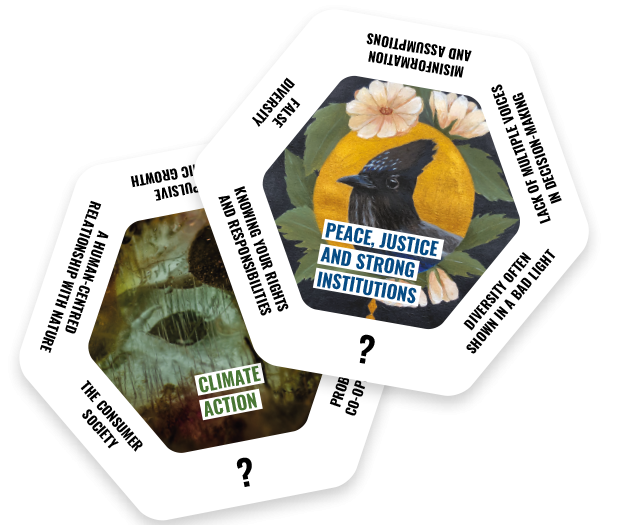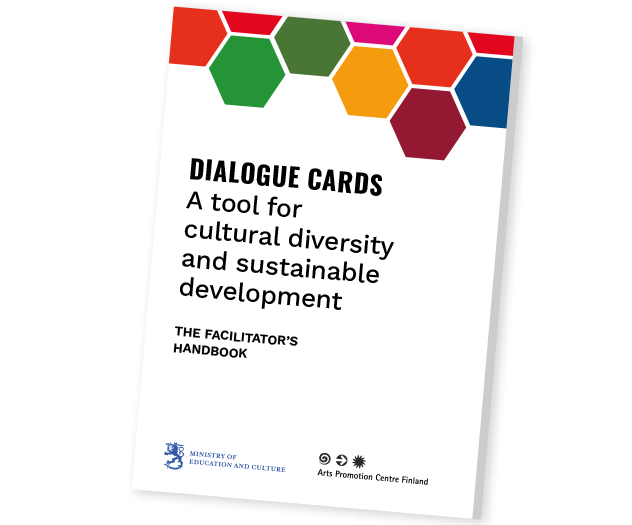Dialogue cards

Start the change
Do you want to be a pioneer in the themes of cultural diversity and sustainable development? Start the change within the arts and culture sector with the help of dialogue cards!
Dialogue cards are a new tool designed to open the concepts of cultural diversity and sustainable development and to promote equality and sustainability in arts and culture services. Order your free-of-charge dialogue cards and initiate a constructive discussion within your work community towards a more diverse and sustainable Finland.
Dialogue cards are designed to be used in workshops. The facilitator's manual that comes with the cards provides all the necessary information and materials for organising the workshops. A certified diversity agent can also be requested from the Culture for All Service to serve as a dialogue card facilitator. These facilitators have been trained by the Culture for All Service and Globe Art Point and can help plan a workshop tailored to your organisation, as well as lead the workshop in person. In the project's pilot year (2023), arts and culture organisations can order dialogue cards and request diversity agents as workshop facilitators free of charge.


How to use dialogue cards
Dialogue cards are used in face-to-face workshops lasting approximately three hours according to the principles for a safer space. In the workshops, participants are encouraged to discuss how cultural diversity and sustainable development are reflected within their work community and how their organisation could develop its operations to make them even more equal and sustainable. In addition, participants can think about how their organisation could operate equally and sustainably in relation to the values and strategies of its community. The goal is to achieve concrete changes.
A suitable group size is approximately 4–7 people per set of cards. Each set contains one deck of cards (9 cards), notepads and a facilitator’s manual. Cards and instructions are available in Finnish and English.
Promoting a better understanding of equality and sustainable development
The dialogue cards for cultural diversity and sustainable development have been developed jointly by the Ministry of Education and Culture and Taike as part of the activities of the Working Group for Cultural Policy, Immigrants and the Promotion of Cultural Diversity. Experts in Finnish art, cultural diversity and sustainable development have been involved in developing the cards. The cards are illustrated with works by nine artists from different cultural backgrounds who were selected through an open call in spring 2022.



